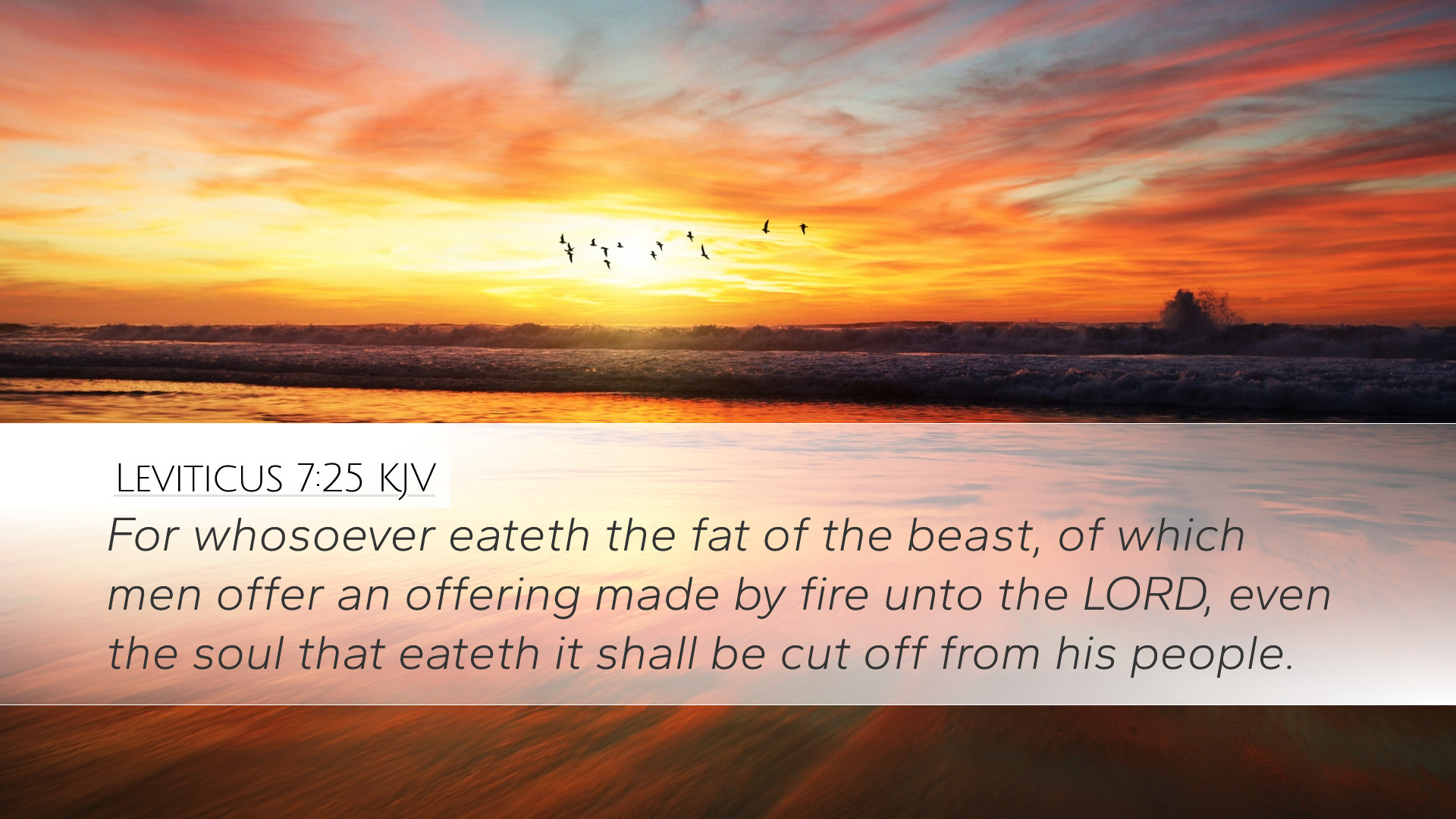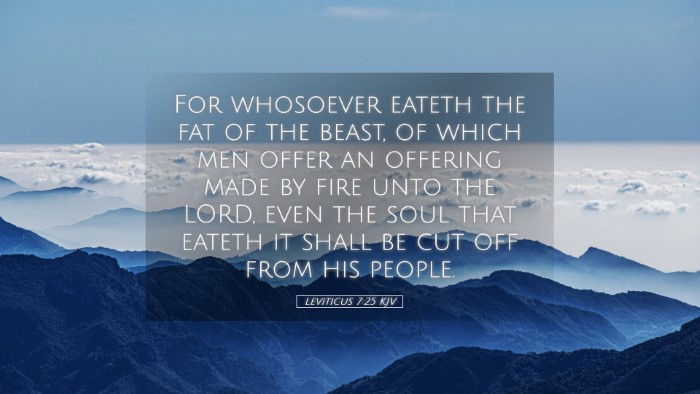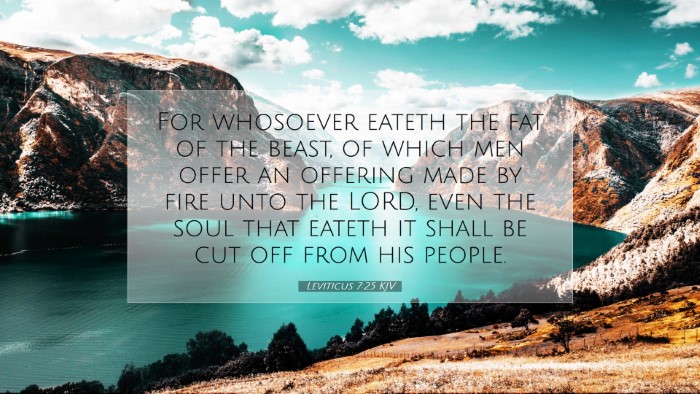Commentary on Leviticus 7:25
Leviticus 7:25 states, "For whoever eats the fat of the beast of which men offer an offering made by fire to the Lord, the person who eats it shall be cut off from his people." This verse highlights the prohibition against consuming the fat of sacrificial animals, a commandment that holds significant theological and practical implications.
Overview of the Context
The book of Leviticus details the laws given to the Israelites concerning holiness, worship, and the sacrificial system. Chapter 7 is particularly focused on the regulations concerning the peace offerings, which are significant in the communal and personal worship of God. Here, the Lord establishes guidelines for the offerings, underscoring the importance of adhering to His commands.
Theological Insights
This verse serves as a clear directive highlighting the holiness associated with God’s offerings. The fat of animals was considered the best portion, which God reserved for Himself. The significance of the fat in sacrificial offerings is reflected in several key aspects:
- God's Sovereignty: The prohibition emphasizes God's right and authority over all that is offered to Him. The fat symbolizes the best of what is presented, reserved for divine purposes.
- Holiness and Separation: Eating the fat is seen as a violation of sacred boundaries, which illustrates the necessity of maintaining holiness in worship. The fat, which represents the life essence of the animal, is not to be consumed by the people.
- Community and Identity: The phrase "cut off from his people" signifies the gravity of violating divine commands. To be 'cut off' represents not only physical separation but also social and spiritual ramifications, indicating how foundational these laws are to the identity of God's people.
Commentary from Public Domain Sources
Matthew Henry: In his commentary, Matthew Henry emphasizes that this prohibition against eating fat serves to maintain the sanctity of what is offered to God. He notes that the fat is a representation of abundance and blessing; thus, it is fitting that it belongs to the Lord alone. Henry also reflects on the seriousness with which God guards His worship practices and the consequences of disregarding them.
Albert Barnes: Barnes elucidates that this injunction against consuming the fat was to ensure that offerings were made completely for the service of God. He highlights the Jewish understanding of fat as a delicacy, underscoring that the best must always be treasured for God. Barnes posits that this reflects a principle applicable to all of life's offerings — that believers are to dedicate and offer their best to God, maintaining a separation from what is reserved for His holiness.
Adam Clarke: Clarke's insights delve into the cultural practices of the time, exploring the various foods associated with sacrificial offerings. He explains the rationale behind the prohibition, asserting that it is rooted in the idea of holiness — that the parts of the animal deemed most valuable must remain consecrated. Additionally, Clarke notes that the term "cut off" suggests a strong and immediate consequence, reinforcing the seriousness with which God views these matters.
Practical Applications
For modern readers, especially pastors, students, and theologians, this scripture carries powerful implications:
- Understanding Sacrifice: Just as the Israelites were called to offer their best, believers today are encouraged to dedicate their lives, time, and resources to God’s work. Understanding what we dedicate to God fosters a deeper relationship with Him.
- Holiness in Worship: The seriousness of God's laws reminds contemporary worshippers about the importance of reverence in worship. There should be an awareness of what is offered to God, ensuring it aligns with biblical principles.
- Community Integrity: The consequences of disobedience reflect how personal actions can affect the community of believers. Leadership within the church today bears significant responsibility for guiding the community in holy living.
Conclusion
Leviticus 7:25 is a poignant reminder of the eternal principle that offerings to God must come from a place of reverence and surrender. The ancient laws surrounding sacrificial practices reveal profound truths about God's character and the expected behavior of His followers. As believers engage in worship today, the challenge remains to offer our lives as living sacrifices, holy and acceptable to God, adhering to His standards and reflecting His holiness in a world that so desperately needs it.


